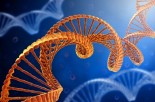There are some parts of your body shape and weight that you can control through exercise, eating right, and taking care of yourself; but there are also some things you can’t control. In the case of excess weight, are your genes to blame, or is your diet the cause?
When Is Your Body Most Comfortable?
Rebecca Scritchfield MA, RD, ACSM Health Fitness Specialist, is an expert on health and happiness, and strongly believes that when it comes to weight, you “can’t just pick a number and be it.” Similar to how you can’t choose to be taller just because you want to, your body’s genetic structure has a predisposition for a certain weight. “Stop focusing on the number behind the weight, and instead try to get to a weight that you feel best in,” stresses Scritchfield. While some people may feel comfortable in a size 0 body, others may never be able to get that small, and if they do, they may feel too uncomfortable.
An important habit to get into is using some of the free time you have available, however little, to move your body and stay active. There is no need to be a part of the billions of dollars spent on weight loss products or programs that come with promises of achieving tiny waists. Learn to accept your body, and if the right habits are there, you will feel much better in your own skin regardless of weight.
If you currently feel guilt or shame about your body or any specific body part, work on avoiding these feelings. Habits can be strong, so remove the bad habits and replace them with good ones. Scritchfield recommends spending an hour at a time just focusing on self-care. Continue stringing it all together and you will be that much closer to your goals.
Set Realistic Goals and Expectations
Speaking of goals, it’s crucial to have a realistic goal. Scritchfield even discourages having a weight loss goal in the first place, since the scale can be misleading. Some of it could be water weight, or if you are doing resistant training to tone up you may actually see an increase in weight since muscle tends to weigh more than fat. This can oftentimes discourage you so much that it will cause you to quit, undoing everything. If you do move close to the number in your head, you may find the results leave you feeling restricted, and will make you more prone to gaining it all back.
Finally, Scritchfield believes you should ask yourself what you value the most out of life. Knowing the answer will help set you up for day-to-day success. There is nothing wrong with wanting change, and weight loss would sure be a great side effect, but think of it as a benefit to your lifestyle changes rather than a goal. Instead of thinking how much happier you would be if you were skinnier, instead think about the things you would like to do today that will get you more fit.
In this audio segment, Rebecca Scritchfield, MA, RD, joins Dr. Holly to discuss why your dieting habits are bound to fail, how your genetics plays a role in weight loss, and how you can develop healthy habits for your own body if you want to lose weight.
Selected Podcast
Is Genetics to Blame for Your Inability to Lose Weight?

Featuring:
 Rebecca Scritchfield MA, RD, ACSM Health Fitness Specialist, is an expert on health and happiness and the Founder of Capitol Nutrition Group, a Washington, D.C, private practice.
Rebecca Scritchfield MA, RD, ACSM Health Fitness Specialist, is an expert on health and happiness and the Founder of Capitol Nutrition Group, a Washington, D.C, private practice.
Rebecca is a passionate advocate for self-care as the foundation for a healthy lifestyle and has been seen and heard internationally on TV, print and online media.
Rebecca Scritchfield, MA, RD
 Rebecca Scritchfield MA, RD, ACSM Health Fitness Specialist, is an expert on health and happiness and the Founder of Capitol Nutrition Group, a Washington, D.C, private practice.
Rebecca Scritchfield MA, RD, ACSM Health Fitness Specialist, is an expert on health and happiness and the Founder of Capitol Nutrition Group, a Washington, D.C, private practice.Rebecca is a passionate advocate for self-care as the foundation for a healthy lifestyle and has been seen and heard internationally on TV, print and online media.